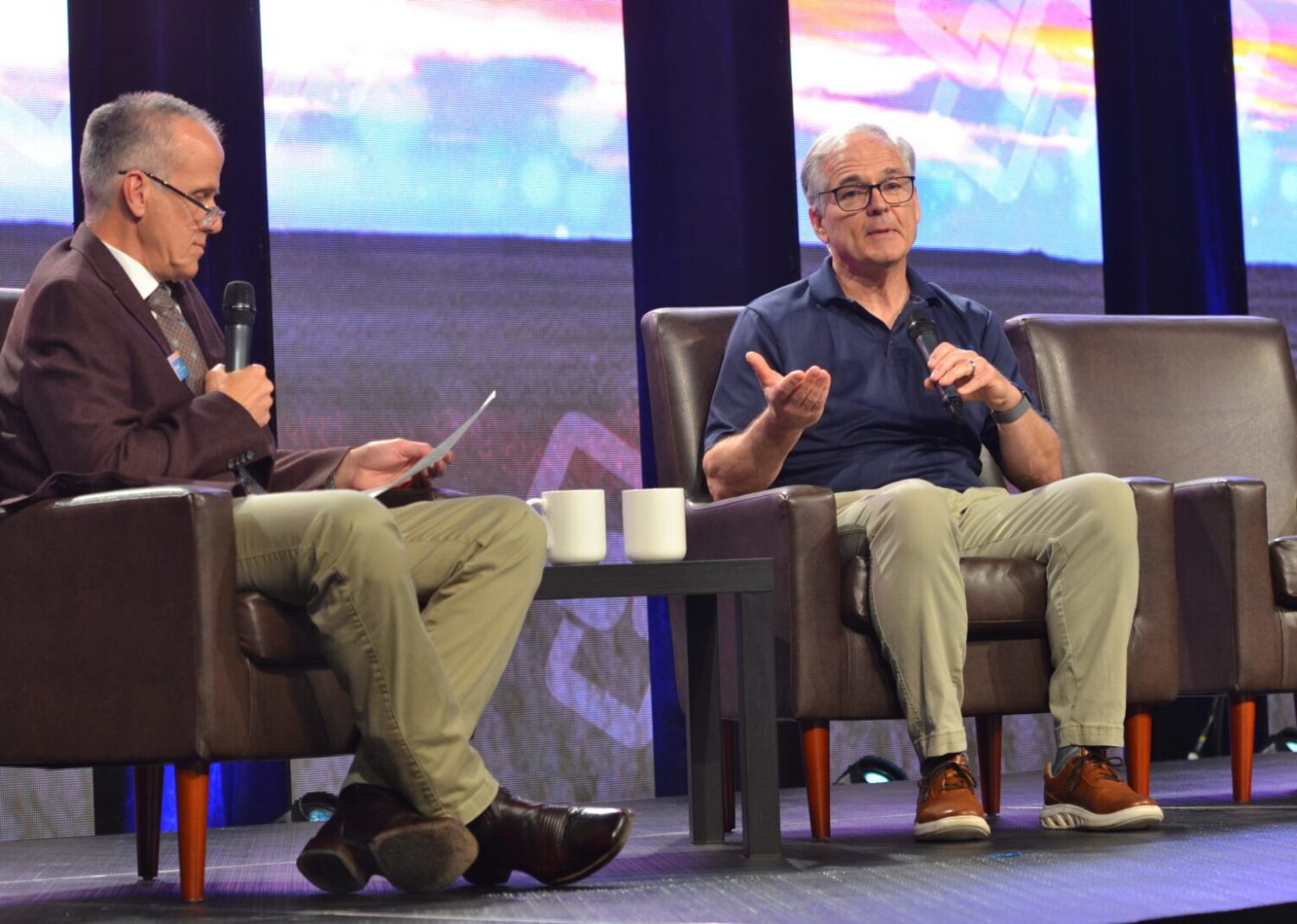
Jeff Beach/North Dakota Monitor
WEST FARGO, N.D. — The demand for jet fuel is going up. The demand for gasoline is going down.
That’s the simple explanation from Chris Ryan, the president and chief operating officer of Gevo, on why the company plans to add a sustainable aviation fuel plant to the corn-based ethanol plant it purchased at Richardton in southwest North Dakota.
Ryan said the low-carbon jet fuel won’t come cheap – throwing out a ballpark figure of $500 million for a potential project still years down the road.
Ryan spoke Tuesday in Fargo at the Midwest Agriculture Summit hosted by The Chamber of Fargo, Moorhead and West Fargo.
Colorado-based Gevo bought the Red Trail Energy ethanol plant at Richardton last year.
The Red Trail plant was the first ethanol producer in the country to implement carbon sequestration — capturing carbon dioxide from the plant’s corn fermentation tanks and pumping it into permanent underground storage.
The CO2 sequestration is key in lowering the carbon intensity score of the plant and for sustainable jet fuel production. Low-carbon fuels can fetch a higher price than traditional liquid fuels.
“We could make gasoline, but it’s a diminishing market,” Ryan said. “So jet fuel is a kind of sexy thing to talk about these days.”
In an interview with the North Dakota Monitor, Ryan said there is plenty of room to add a jet fuel plant at the 500-acre Richardton site. He said the plant would add about 50 jobs, about the same number that the ethanol plant employs.
Expanding the ethanol plant also is a possibility, Ryan said.
The company also is considering adding wind turbines at Richardton to provide power and lower the carbon score even further, he said. Even though renewable energy tax credits are a possible target for budget cuts under President Donald Trump, he said wind energy at the site still makes good economic sense.
South Dakota plans discussed
Gevo also has plans for a sustainable aviation fuel plant at Lake Preston in southeast South Dakota.
The future of that plant depends in large part on the five-state Summit Carbon Solutions pipeline project that would take carbon emissions from ethanol plants to western North Dakota for underground storage.
Ryan said when the South Dakota project was conceived, it did not include carbon capture. But as construction costs soared with the COVID-19 pandemic, he said it became necessary to sign on to the Summit pipeline project. He said the federal tax credits for carbon sequestration would help offset the higher building costs.
The project has stalled as Summit has run into permitting rejections and a new state law banning the use of eminent domain by carbon pipeline projects.
“We really need the pipeline,” Ryan said.
He added that Gevo bought more land than it needed for the project. That is allowing for other projects at the site, benefiting Gevo and the Lake Preston area, he said.
The Summit delays spurred the purchase of Red Trail, which had the advantage of sitting almost on top of an area suitable for underground carbon storage.
“We had to take our destiny into our own hands,” Ryan said, and not be dependent on the Summit pipeline.
He said Gevo can “copy and paste” the engineering work done for the South Dakota site to the Richardton site.
Potential use of carbon for oil recovery acknowledged
While the carbon dioxide from the Richardton plant is being pumped underground, Ryan said Gevo recognizes that it has a potential for use in North Dakota’s oilfields, making oil wells more productive through what is called enhanced oil recovery.
North Dakota leaders have been trumpeting the economic benefits of enhanced oil recovery.
Ryan said if the oil industry is willing to pay for carbon dioxide to use in enhanced oil recovery, Gevo would sell the CO2 rather than pump it underground.
“We don’t care where the revenue comes from, right? Today, we sequester it for a tax credit, and we can sell carbon credits,” Ryan said. “Or you can sell it to somebody for enhanced oil recovery.”
He said he sees it as another advantage of doing business in North Dakota.
“People in North Dakota get that, they understand the value of that,” Ryan said.

